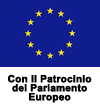QUESTA NOTA DESCRIVE IN MANIERA CONCISA I RISULTATI PRINCIPALI DELL’ULTIMA RIUNIONE DEL CONSIGLIO AFFARI INTERNI E GIUSTIZIA DELL’UE, TENUTASI IL 7 E 8 MARZO 2019.
Autore: Laura De Rose, Vice direttore Foroeuropa
I punti principali sono i seguenti:
- Progetto di regolamento sulla Guardia Europea di frontiera e costiera (Frontex): i negoziati con il Parlamento Europeo (PE) sono in corso, al fine di raggiungere un accordo prima delle prossime elezioni europee. Un punto importante è il principio della formazione graduale della futura Guardia.
- Riforma del sistema comune europeo relativo all’asilo e al ricollocamento: il Consiglio deve ancora decidere se discutere l’intero pacchetto legislativo ovvero ciascun elemento separatamente.
- Progetto di Direttiva riguardante la protezione delle persone che segnalano violazioni del diritto dell’Unione: anche in questo caso, il Consiglio spera raggiungere un accordo con il PE prima delle elezioni europee.E’ interessante notare che le nuove regole si applicheranno anche agli enti privati aventi più di 50 impiegati.
- Progetto di Direttiva recante norme armonizzate sulla nomina di rappresentanti legali dei prestatori di servizi online ai fini dell’acquisizione di prove nei procedimenti penali: il Consiglio ha approvato la sua posizione su questo nuovo strumento legislativo, il quale faciliterà l’applicazione del prossimo nuovo Regolamento relativo agli ordini europei di produzione e di conservazione di prove elettroniche in materia penale, che è attualmente in discussione al PE. L’obbligo di nominare rappresentanti legali incaricati di produrre o conservare prove elettroniche è di particolare rilievo anche rispetto ai prestatori di servizi stranieri che non risiedono nell’UE. Il Consiglio ha anche discusso lo stato dei negoziati per un nuovo accordo fra l’EU e gli Stati Uniti d’America, che permetterebbe alle autorità competenti dei Paesi Membri di ottenere dai prestatori di servizi online americani informazioni in modo agevolato.
- Procura Europea (EPPO): il Consiglio e il PE devono designare il Procuratore Capo dell’EPPO di comune accordo. Si prevede che ciò avverrà nelle prossime settimane. Nel frattempo, la Commissione ha invitato i 22 Paesi Membri partecipanti a nominare i loro candidati per il posto di procuratore europeo, tre candidati per Paese, non più tardi della fine di marzo.Si prevede che le attività operative dell’EPPO non inizieranno prima del 20 novembre 2020.
- Lista dei Paesi Terzi ad alto rischio per quanto riguarda il riciclaggio del denaro sporco e il finanziamento del terrorismo: la Commissione ha presentato una lista di 23 Paesi. Tuttavia, il Consiglio ha respinto la proposta per varie ragioni, quali la mancanza di trasparenza o il diritto dei Paesi in questione di esprimersi. La Commissione dovrà quindi presentare una nuova proposta.
Il sommario di cui sopra è anche fornito in lingua inglese. Il testo inglese include informazioni supplementari.
MAIN OUTCOME OF THE JUSTICE AND HOME AFFAIRS COUNCIL OF 7 – 8 MARCH 2019
HOME AFFAIRS
- European Board and Coast Guard (Frontex): update on negotiations with the European Parliament (EP) pertainingto the new Regulation on Frontex.
The aim is to reach an agreement before the European elections. The Council adopted its position on this Regulation on 20 February: the key element of this position is that the future standing corps should be built up progressively, reaching 10,000 operational staff by 2027, and depending on the results of a mid-term review by the Commission by March 2024. Depending on the need, the number of operational staff to be deployed could be confirmed, or amended. Furthermore, the deployed staff would be granted executive powers to carry out border controls or return tasks, however, the exercise of those powers would remain subject to the authorisation of the host Member State.
- Reform of the Common European Asylum System andResettlement: ongoing discussions on the approach to be taken in current preparations.
The Council has still to decide whether work towards an agreement and possible adoption should concern the all set of proposals or each proposal separately.
JUSTICE
- Whistleblowers’ protection: update on negotiations with the European Parliament (EP) pertaining to the new Directive on the protection of whistleblowers.
The aim is to reach an agreement before the European elections. Whistleblowers are individuals who speak up when encountering wrongdoing harming the public interest in the context of their work. Interestingly, the new Directive foresees that whistleblowers’ reporting may also occur within private organisations, provided that they have more than 50 employees.
- E-evidence package: reached general approach on the Directive on the appointment of a legal representative for the gathering of evidence in criminal proceedings.
This Directive is instrumental to the application of the future Regulation on European production and preservation orders for electronic evidence, as it sets out rules for the appointment of service providers’ legal representatives whose role will be to receive and respond to such orders. The appointment of legal representatives is all the more important in the case of non-EU service providers not residing in the EU.
Relating to e-evidence, discussions are ongoing between the EU and the US in view of the conclusion of a possible agreement under the US CLOUD (Clarifying Lawful Overseas Use of Data) Act on facilitating access to e-evidence. In particular, the Act allows US service providers to deliverthe data, without the need for a Mutual Legal Assistance request and regardless of where the data are located, to a foreign government, provided the US has concluded an executive agreement with said government. The JHA Council reaffirmed the principle that, given the EU competence on the matter, such an agreement should be concluded with the EU rather than with individual Member States.
- European Public Prosecutor’s Office (EPPO): implementation state of play.
The selection of the European Chief Prosecutor is ongoing, with the Council and the EP to agree in the coming weeks on the candidate to be appointed. In parallel, the 22 participating Member States have been invited to start their selection procedure to nominate their candidates for the post of European Prosecutors by the end of March. According to the EPPO Regulation, each Member State shall nominate three candidates. The date on which the EPPO will start operating is to be set by the Commission on the basis of a proposal from the European Chief Prosecutor. The estimated date is three years after the entry into force of the EPPO Regulation, i.e. 20 November 2020 at the earliest.
- EU List of high-risk third countries for anti-money laundering and terrorist financing: rejected by the Council
The Council rejected the list of 23 third countries submitted by the Commission because it considered that this list had not been established in a transparent and resilient process incentivising the affected countries to take decisive action while also respecting the right to be heard. The Commission was asked to propose a new list of high-risk third countries addressing the concerns expressed by the Council.


